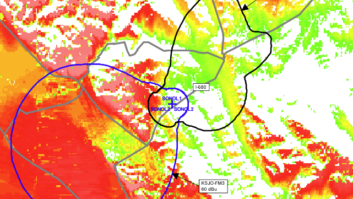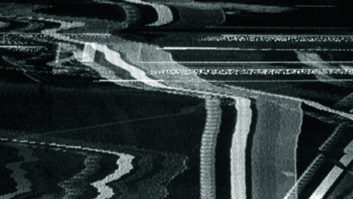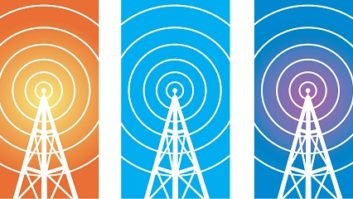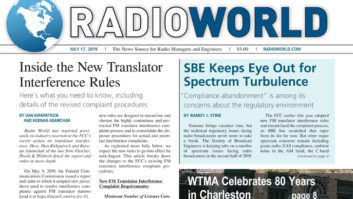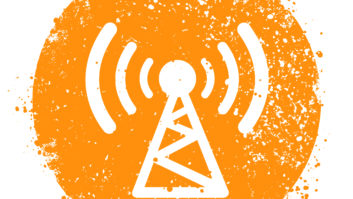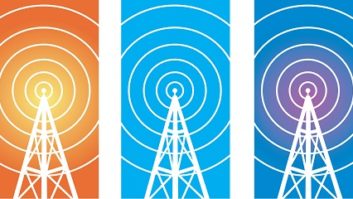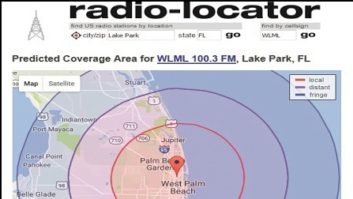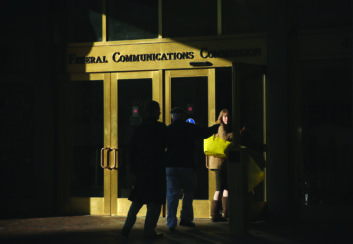
Radio World has reported previously on industry reaction to the FCC’s recent action on translator interference. Here, Dan Kirkpatrick and Keenan Adamchak of the law firm Fletcher, Heald & Hildreth detail the report and order in more depth.
On May 9, 2019, the Federal Communications Commission issued a report and order in which it adopted new procedures used to resolve interference complaints against FM translator stations.
Sections 74.1203(a) and 74.1204(f) of the commission’s rules outline the procedures required for resolving complaints of actual and potential interference, respectively, against FM translators. The new rules are designed to streamline and shorten the highly contentious and protracted FM translator interference complaint process and to consolidate the disparate procedures for actual and potential interference complaints.
As explained more fully below, we expect the new rules to go into effect by mid-August. This article breaks down the changes to the FCC’s existing FM translator interference complaint procedures.
New FM Translator Interference Complaint Requirements:
Minimum Number of Listener Complaints. The FCC adopted a requirement for a minimum number of bona fide (i.e., actionable) complaints ranging from six to 25 depending on the population served by a complaining station. The commission based the complaint minimums on an approximate increase of one complaint for every 100,000 people in the complaining station’s service area — i.e., six complaints for a population of 1–199,999 to 25 complaints for a population of 2,000,000 or more. Previously, FM translators could be forced off the air as a result of a single unresolved interference complaint brought against the station, or multiple unresolved interference complaints from a single location. As a result, the FCC now requires translator interference claims to be based on “separate receivers at separate locations” — whereby multiple listener complaints from a single location will not count beyond the first complaint towards the prescribed complaint minimum.
Contents of Each Listener Complaint. Under the FCC’s existing complaint procedures, there are separate requirements for demonstrating that individual potential and actual interference complainants are bona fide. This has resulted in protracted and contentious proceedings as to which individual complaints had to be resolved by the translator licensee — many times before the technical aspects of the interference complaints were even addressed.
[FCC Finalizes FM Translator Interference Rules]
In the report and order, the commission streamlined the individual complaint requirements by defining an actionable listener complaint as a complaint that is signed and dated by the listener and contains the following information:
- The complainant’s full name, address, and phone number
- A clear, concise and accurate description of the location where interference is alleged to occur (e.g., map coordinates, street addresses, street intersections, etc.)
- A statement that the complainant listens to the complaining station using an over-the-air-signal at least twice a month to demonstrate that the complainant is a regular listener
- A statement that the complainant has no legal, employment, financial or familial affiliation with the complaining station (social media contacts with, participation in promotions/contests held by, volunteering for, or donating to a complaining station are no longer deemed as disqualifying) to demonstrate that the complainant is disinterested
Complaints adhering to the above requirements enjoy a presumption of validity — which the translator licensee bears the burden of rebutting.
The FCC also eliminated the requirement that listener complainants must cooperate with translator licensees in resolving their interference complaints. In the past, listener cooperation was essential for the complaint to be bona fide — thus resulting in protracted and contentious proceedings as to the level of the listener’s cooperation.
Contour Limit on Interference Complaints. The commission adopted a contour limitation on translator interference complaints, setting the complaining station’s 45 dBµ signal contour as the outer limit for both actual and potential interference complaints. In other words, all individual interference complaints must now allege interference from a location within the complaining station’s 45 dBµ contour to be actionable.
[Don’t Kill My FM Translator!]
Under the FCC’s existing complaint procedures, there are no geographic limitations on actual interference complaints, and the existing rules only require that each individual complainants’ address fall within the translator’s 60 dBµ service contour in order to be bona fide. The commission adopted the 45 dBµ contour limit due to concerns that out-of-market stations were using the lack of geographic limitations on complaints to extend their reach into markets which they otherwise would not have.
In the report and order, however, the FCC stated that waivers of the 45 dBµ contour limit would be granted in extremely limited circumstances. To obtain a waiver, the complaining station would have to include at least 20 individual complaints from outside the 45 dBµ contour. In reviewing such requests, the FCC would also take into account relevant factors including a demonstration that: (1) geographic features enhance reception at the relevant listener locations; and (3) the listener expectation of service is well-established.
Other Complaint Requirements. Under the new procedures, complaining stations must also include the following with their interference complaint:
- A map plotting the specific locations of alleged interference in relation to the complaining station’s 45 dBµ contour
- A statement that the complaining station is operating within its licensed parameters [not including pursuant to Special Temporary Authority (STA)]
- A statement that the complaining station’s licensee has used commercially reasonable efforts at resolving the interference issue with the translator’s licensee
- Undesired/Desired (U/D) data demonstrating that at each listener location the ratio of undesired to desired signal strength thresholds (co-channel and first, second, and third-adjacent stations as appropriate) are satisfied
[It’s Complicated: Garziglia on FM Translator Rule Changes]
Previously, the map and the technical showing requirements only applied to potential interference claims — not claims of actual interference. Moreover, the commission noted that the certification that the complaining station was operating pursuant to its licensed parameters was necessary because operating outside of the station’s licensed parameters “could affect its actual versus its licensed 45 dBµ signal contour and therefore alter the permissible scope of its interference claim.” Nevertheless, the FCC failed to state in the report and order whether the actual or licensed 45 dBµ contour was required for an interference complaint.
Finally, the commission noted that the certification regarding the private resolution of interference complaints would encourage parties to resolve complaints before a complaint proceeding was initiated at the FCC.
New Complaint Remediation Procedures
The commission also drastically changed the existing translator interference complaint procedures to speed up and streamline the process. Under the new rules, translator licensees may resolve each listener complaint by either working with: (1) a willing listener to resolve reception issues; or (2) the complaining station to resolve signal interference issues using suitable techniques.
Working with Willing Listener Complainants. Translator licensees are permitted to resolve individual listener complaints by adjusting or replacing the listener’s equipment. This option, however, is only available if: (1) the listener’s equipment is determined to be the primary cause of the interference issue; and (2) the listener is willing to cooperate with efforts to eliminate the interference. Otherwise, translator licensees are required to work directly with the complaining station to resolve interference complaints.
Working with Complaining Stations. The vast majority of translator interference complaints must now be resolved by translator and complaining station licensees working together using suitable techniques to resolve the interference issue. Such suitable techniques include, but are not limited to usage of: (1) the U/D ratio methodology previously applicable only to potential interference complaints; (2) the FCC’s standard contour predicted methodology specified in Section 73.313 of the commission’s rules; (3) on/off testing; and (4) on-site field strength measurements. The FCC noted that lack of interference may be demonstrated by either on/off testing or on-site field strength measurements, and alternative translator technical parameters that would eliminate interference could be derived from on/off testing.
[The Development of the Directional AM Broadcast Antenna]
The commission intends to provide translator and complaining station licensees flexibility in the interference testing and remediation techniques and therefore leaves it to the parties to settle upon mutually-acceptable techniques. If the translator and the complaining station licensees are unable to agree on which methodologies to employ, the parties may engage a third-party engineer to conduct interference testing and remediation. The results, however, are to be jointly submitted to the FCC — which will make a final determination as to whether interference has been resolved. Unilateral or contested data, however, will not be permitted to be presented to the commission as a remediation showing — or to dispute such a showing.
The FCC declined to adopt a universal interference resolution deadline, instead deferring to the Media Bureau to establish specific deadlines for each interference complaint. The commission, however, established a target deadline of 90 days from the date the bureau completes its initial review of an interference complaint to resolve complaints.
In practice, the bureau will issue a letter notifying the translator licensee that the interference complaint has passed its initial review, and will set a specific remediation deadline along with any necessary intermediate deadlines (e.g., remediation plan deadline). If all interference complaints are not resolved by the set deadline, the FCC may order the immediate suspension of translator operations or power reduction.
Channel Changes
The commission adopted the proposal to allow FM translator stations to remediate interference issues (either caused to or received from another station) by changing channels to any available same-band frequency. Such channel changes would now be deemed minor changes and would be permitted upon a showing of actual or predicted interference to or from any other broadcast station. Previously, translators were only permitted to move to first, second, and third or intermediate frequency (IF) channels to resolve interference. The expanded channel-change options will provide translator licensees with increased options for resolving interference — without having to undergo protracted complaint proceedings or being forced off the air for failing to eliminate interference.
Treatment of Pending Complaint Proceedings
The commission explicitly stated that any FM translator interference complaints pending as of the effective date of the new rules would be decided under the new rules.
Once the new rules become fully effective, the commission will permit parties to pending complaint proceedings to submit supplemental materials to address the revised rules. Presumably, this will serve as an opportunity for complainants to make the necessary modifications to their complaints to adhere to the new complaint requirements, and for defending translator licensees to seek dismissal of the complaints for their failure to adhere with the new procedural requirements.
The amended rules should become effective in mid-August. The report and order was published in the Federal Register on June 14, which would make the effective date of the rule amendments that do not constitute “information collections” Aug. 13 (we note that the initial Federal Register publication reported the effective date as July 15, but FCC staff has confirmed that was in error, and a correction will be published).
As stated in the report and order, however, the bulk of the new complaint procedures deal with “information collections” and therefore require the further approval of the Office of Management and Budget under the Paperwork Reduction Act, and will become effective only after the FCC publishes a notice of OMB approval in the Federal Register. FCC staff has indicated that they expect that approval to also be obtained by mid-August, so that all of the rule amendments can take effect at the same time.
Should you have any questions regarding the new FM translator interference complaint procedures, or require assistance navigating a current complaint proceeding, please contact your attorney.
This article originally appeared on the blog of Fletcher, Heald & Hildreth.





